🎉 Welcome Dr. Daniele Vivona! 🎉
We are excited to welcome Dr. Daniele Vivona as an Assistant Professor in the School of Mechanical, Aerospace, and Manufacturing Engineering and the UConn Center for Clean Energy Engineering at the University of Connecticut!
Dr. Vivona’s research explores atom-level energy conversion processes to develop innovative design solutions for ion transport and interfacial phenomena in advanced energy materials. His work aims to drive forward next-generation electrochemical energy conversion devices, combining physics-based modeling, atomistic simulations, and data-driven approaches to bridge multiple time and length scales.
Dr. Vivona earned his Ph.D. in Mechanical Engineering from MIT, where he was a MathWorks Mechanical Engineering Fellow, a Rohsenow Graduate Fellow, and a member of the MIT Society of Energy Fellows. He also holds B.Sc. and M.S. degrees in Energy Engineering from the Polytechnic Institute of Milan, and an M.S. in Mechanical Engineering from UConn.
Faculty News
UConn Researchers Win Distinguished ASME Best Paper Award
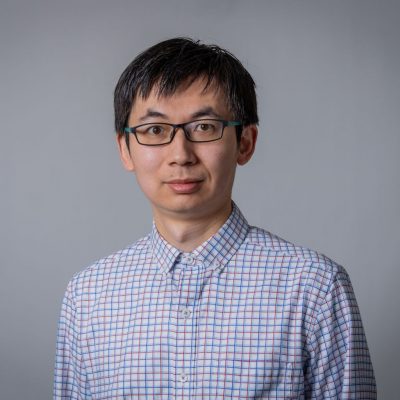 |
 |
Prof. Hongyi Xu and Prof. Farhad Imani |
|
A team of researchers from UConn has received the 2025 ASME Design for Manufacturing and the Life Cycle (DFMLC) Best Paper Award, a national honor given to only one paper each year. The award was presented at the ASME 2025 International Design Engineering Technical Conferences & Computers and Information in Engineering Conference (IDETC/CIE), held August 10–17 in Anaheim, California.
The winning paper introduces a new artificial intelligence framework that helps detect problems in advanced 3D printing processes, also known as additive manufacturing. By combining powerful language models with scientific data, such as images and text from research articles, the system can automatically spot and explain manufacturing defects without needing prior training on each specific case. The team successfully tested this method on several datasets from Oak Ridge National Laboratory, covering different machines, materials, and conditions.
The research was carried out by Kiarash Naghavi Khanghah, Zhiling Chen, Lela Romeo, Dr. Qian Yang, Dr. Rajiv Malhotra, Dr. Farhad Imani, and Dr. Hongyi Xu, in collaboration across the UConn School of Mechanical, Aerospace, and Manufacturing Engineering, the UConn School of Computing, and the Rutgers Department of Mechanical and Aerospace Engineering.
A preprint of the paper is available through this link https://arxiv.org/abs/2505.13828
Tarakanova Honored with Eshelby Mechanics Award for Young Faculty
As the body ages, a network of proteins and other molecules may structurally change, leading to a loss of elasticity and tissue strength in skin, joints, and arteries. This can lead to reduced muscle mass, stiffness, and increased susceptibility to chronic diseases like osteoarthritis.
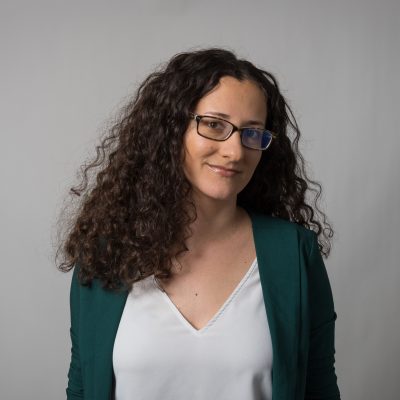 Anna Tarakanova, assistant professor of mechanical engineering and biomedical engineering, leads a research group in UConn’s College of Engineering (CoE) that uses advanced computer models to study the mechanical properties of proteins.
Anna Tarakanova, assistant professor of mechanical engineering and biomedical engineering, leads a research group in UConn’s College of Engineering (CoE) that uses advanced computer models to study the mechanical properties of proteins.
In doing so, she’s developing nature-inspired materials that can mimic the flexibility of elastin or the durability of collagen. These designs could lead to innovations in medical devices, prosthetics, or even “repurpose” molecules for resilience in aging.
“Ultimately, our goal is to understand aging and disease at a basic, molecular level and how that fits into the bigger picture of how complex biological systems function,” Tarakanova explains.
Dr. Langston Receives Gov. Lamont’s Commendation

During the recent “UConn Forum: Economic Engine of a Thriving Connecticut,” which brought together leaders, researchers, and public officials, UConn President, Dr. Radenka Maric presented Prof. Emeritus Lee Langston, an ASME Life Fellow, with the proclamation from Gov. Ned Lamont.
Dr. Langston’s career included helping to develop the fuel cells that powered Apollo 11 to the moon. He also was part of a team that helped install the first solar panels at the White House during the Carter Administration, and pioneered gas turbine technologies now used worldwide, including at UConn’s Cogeneration (CoGen) Central Utility Plant.
He joined UConn in 1977 as a mechanical engineering professor after more than a decade at Pratt & Whitney. He also served a year as the interim dean of the School of Engineering (now a college), later retiring from UConn in 2003 but remaining active as a professor emeritus.
“His contributions to science and society are immeasurable,” Maric said in presenting the proclamation, adding that she first learned of his expertise in sustainable energy when she was studying for her Ph.D. in Japan.
New Models Help Predict Protein Dynamic Signatures
by
This breakthrough in accurately predicting protein crystallization propensity is vital for developing drugs and understanding diseases
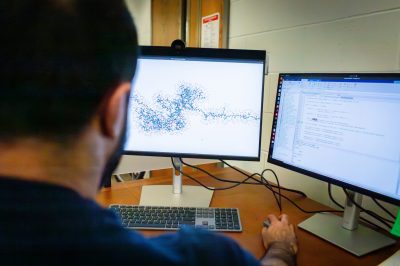
To the average person, knowing how a protein wiggles might not seem that exciting or pertinent, but then again, most people aren’t fascinated by the natural movements and fluctuations of proteins and their functional properties. If, however, you were interested in designing new drugs, better understanding how diseases can be eradicated or enhancing biotechnology for industrial and therapeutic applications, you might be on the edge of your seat waiting to see what a new study on protein sequencing and crystallization has to offer.
An article about that study, authored by Anna Tarakanova, assistant professor in the School of Mechanical, Aerospace, and Manufacturing Engineering at UConn’s College of Engineering, has just appeared in a prominent monthly scientific journal, Matter, which focuses on the general field of materials science. The study examines how the natural movements and fluctuations of proteins – the protein’s “wiggles” – can help predict their functional properties. Tarakanova was assisted by Mohammad Madani, a Mechanical Engineering graduate student and first author of the study.
Dr. Stephany Santos, an MAM alumna, named to the Vergnano Endowed Chair for Inclusion
by
Stephany Santos, named to the newly established Vergnano Endowed Chair for Inclusion, sees her role as helping students build successful engineering futures, no matter the challenges
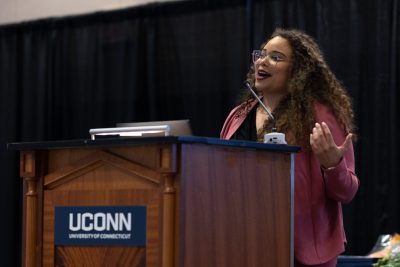
Stephany Santos, the new Vergnano Endowed Chair for Inclusion at UConn’s College of Engineering, feels like she’s been preparing for this role since she set foot on UConn’s campus in 2008, as an undergraduate preparing to study mechanical engineering.
Prior to her first summer at UConn, she was a participant in the BRIDGE program, which is a transitionary preparation program designed to support the success of incoming first-year students that are underrepresented in engineering.
The BRIDGE program, then run out of the Engineering Diversity Program led by Kevin McLaughlin, became a hallmark of her identity and purpose as an engineering student and leader at UConn, says Santos ’12 (ENG) ’20 Ph.D. She volunteered for every program offered by the Engineering Diversity Program, from Multiply Your Options, a program designed to inspire 8th-grade girls to think about STEM, to the Northeast Regional Science Bowl, the largest regional competition in the country for high school students competing quiz-bowl-style in STEM questions.
During this period Santos also helped found UConn’s student organization Engineering Ambassadors. This is an organization that supports K-12 teachers and education systems by broadening understanding and access to engineering, and by exploring how engineers can change the world for good. These programs, Santos explains, are foundational in creating confidence academically, connections psychosocially and inspiration professionally.
Mission Complete: Lee Spends 45 Days in NASA Simulated Journey to Mars
by Olivia Drake – UConn College of Engineering
By participating in the mission, College of Engineering’s Jason Lee contributed to NASA’s efforts to study how future astronauts may react to isolation and confinement during deep-space journey.
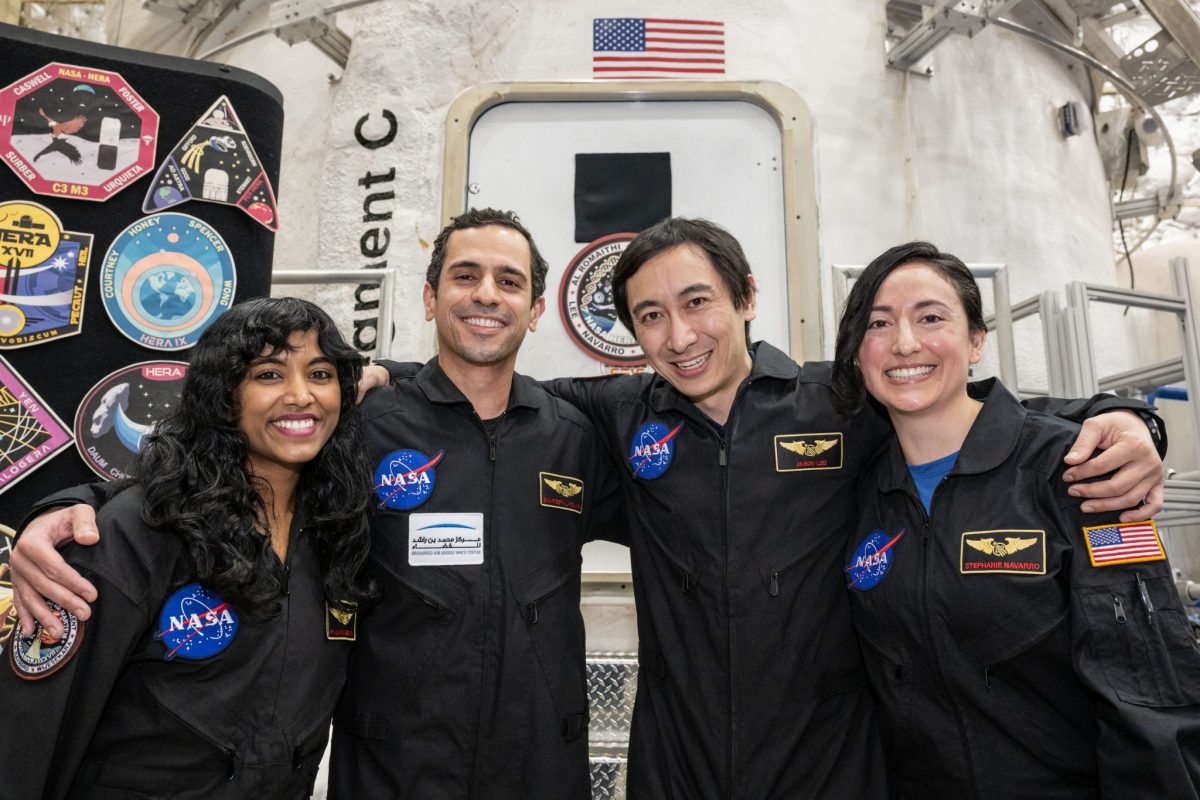
Jason Lee’s lifelong aspiration to explore outer space became a reality—without ever needing to leave planet Earth.
For 45 days, Lee, associate professor-in-residence in the School of Mechanical, Aerospace, and Manufacturing Engineering, lived in NASA’s Human Exploration Research Analog (HERA) habitat at Johnson Space Center, participating in a simulated journey to Mars.
There, he and three other crew members operated in a constrained environment, completing mission-critical tasks, conducting repairs, viewing Martian landscapes through virtual reality, and making communication attempts with Mission Control.
Professor Jiong Tang receives the ASME Myklestad Award
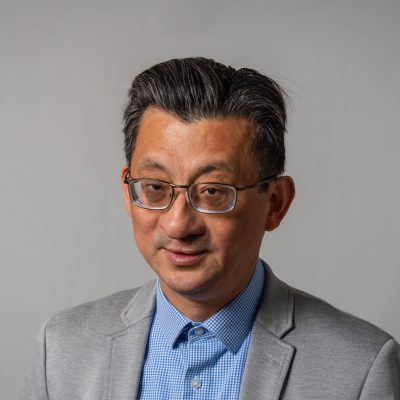 Professor Jiong Tang, a distinguished figure in the field of mechanical engineering, has recently been honored with the prestigious ASME Myklestad Award in 2024. This award, established by the American Society of Mechanical Engineers (ASME), recognizes individuals who have made significant contributions to vibration engineering, particularly in areas related to analytical methods, experimental approaches, and practical applications in mechanical and aerospace systems. Prof. Tang’s work exemplifies the high standards of innovation, rigor, and impact that the Myklestad Award celebrates, showcasing his commitment to advancing the field of vibration engineering through both fundamental research and practical advancements.
Professor Jiong Tang, a distinguished figure in the field of mechanical engineering, has recently been honored with the prestigious ASME Myklestad Award in 2024. This award, established by the American Society of Mechanical Engineers (ASME), recognizes individuals who have made significant contributions to vibration engineering, particularly in areas related to analytical methods, experimental approaches, and practical applications in mechanical and aerospace systems. Prof. Tang’s work exemplifies the high standards of innovation, rigor, and impact that the Myklestad Award celebrates, showcasing his commitment to advancing the field of vibration engineering through both fundamental research and practical advancements.
Throughout his career, Prof. Tang has led pioneering research that has transformed understanding and approaches within dynamics and vibration. His contributions span a broad array of applications, including structural health monitoring, smart materials, and robust control systems. His research has not only pushed theoretical boundaries but also driven technological advancements that enhance the resilience, functionality, and safety of mechanical systems in various industries. His work has been particularly influential in aerospace and civil engineering, where precise vibration control is critical for ensuring the structural integrity and performance of complex systems.
This honor not only acknowledges his past accomplishments but also underscores his ongoing contributions to the advancement of engineering knowledge and practice.
Prof. Pierce Elected Fellow of the ASME
 Prof. David Pierce has been elected as a Fellow of the American Society of Mechanical Engineers (ASME), one of the highest honors awarded by the organization. This prestigious recognition celebrates Dr. Pierce’s significant contributions to the field of mechanical engineering, acknowledging years of dedicated research, innovative teaching, and impactful advancements within the discipline. As a Fellow, Prof. Pierce joins an elite group of professionals who have demonstrated exceptional achievements and leadership in mechanical engineering, further enhancing the visibility and impact of their work on a global scale.
Prof. David Pierce has been elected as a Fellow of the American Society of Mechanical Engineers (ASME), one of the highest honors awarded by the organization. This prestigious recognition celebrates Dr. Pierce’s significant contributions to the field of mechanical engineering, acknowledging years of dedicated research, innovative teaching, and impactful advancements within the discipline. As a Fellow, Prof. Pierce joins an elite group of professionals who have demonstrated exceptional achievements and leadership in mechanical engineering, further enhancing the visibility and impact of their work on a global scale.